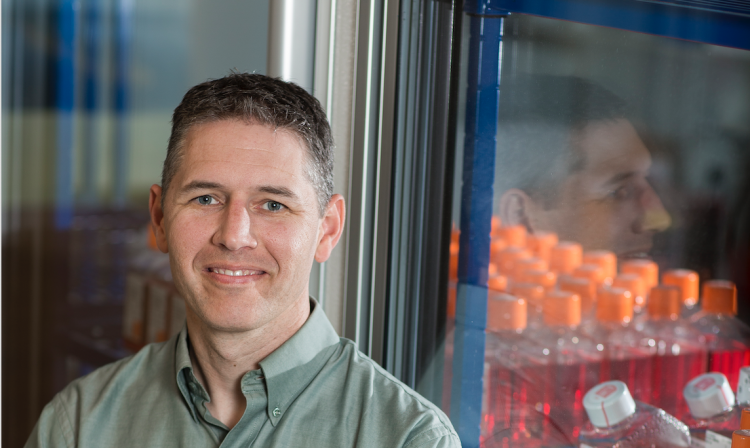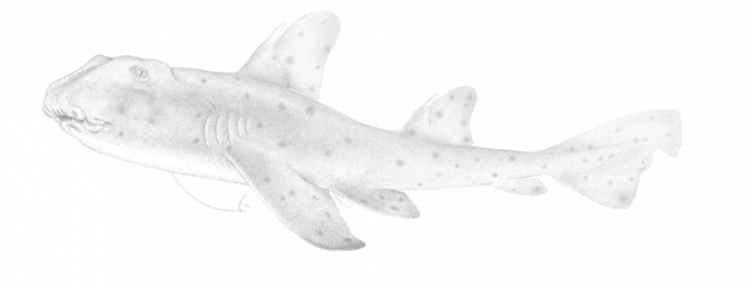With that goal in mind, Dr. Crotty dedicated himself to studying vaccine-related immunology to understand the fundamentals of what makes a good immune response. He drew national attention when he discovered a pivotal piece of the body’s mechanism for switching on the production of antibodies, a key ingredient of a strong immune response and the essential feature of the immune response to nearly all licensed vaccines. The process hinges on so called follicular helper T (Tfh) cells, which instruct B cells to start churning out antibodies that effectively neutralize or prevent infection. Most importantly, Dr. Crotty demonstrated that Tfh cells are crucial to triggering broadly neutralizing antibodies against HIV, the virus that causes AIDS. This seminal finding led to Dr. Crotty’s international recognition as an expert in vaccine design, and to his inclusion as a T cell expert in one of the nation’s top AIDS vaccine consortiums. Last year, Dr. Crotty officially rose to the rank of Highly Cited Researcher, a select group of pioneering scientists whose work wields outsized influence in their respective fields of study. He is also the author of Ahead of the Curve, an acclaimed biography of Nobel laureate scientist David Baltimore.

What sparked your interest in science?
Sharks.
Can you explain?
During my junior year in high school, I was accepted into the National Science Foundation’s Young Scholars program. It was a phenomenal program. It took high school students from across the Los Angeles area and paired them with a research professor at a nearby university. But I grew up in Antelope Valley, in the high desert at the outer edge of Los Angeles and the nearest university was an hour and a half away. The solution, somewhat counterintuitively, was to send me to the UCLA/USC joint marine biology lab on Catalina Island, which is the furthest possible distance in L.A. County from where I lived. So, once a month, I spent the weekend on Catalina Island.
Is that where you encountered the sharks?
Yes, I was part of a project that asked whether horned sharks had color vision. Mostly, it was a very general introduction to experimental science but based on that experience I wanted to go to a college where I could actually do experiments.

Where did your interest in writing originate?
Science relies heavily on writing and I wanted to be able to do it well. Publications, and even more so grant applications, need to cover a lot of complicated matters in very little space and that’s really hard to do well. I also wanted to be able to communicate science to non-scientists. The public is constantly making decisions about science and policy such as recombinant DNA, cloning organisms, or genetically modified food, often without a basic understanding of the underlying science.
How did you pick David Baltimore as your subject?
For one of my writing classes I had to write a 25-page biography. I had three tenets: It was going to be a biologist but it needed to be somebody alive because I wanted to interview that person. And there had to be conflict. Without conflict, books are boring and books about science doubly so. All I knew about Baltimore was that he was controversial and that he had won a Nobel Prize. He really evoked some powerful emotions in people.
Isn’t a class assignment still a far cry from publishing a full-length biography?
Eventually, I expanded that paper into a full thesis project because by that point it was also clear to me that David Baltimore was a great prism for talking about different areas of science since he had had such a great impact on so many different fields. It was actually my thesis advisor who suggested that I publish the biography. After a few false starts, I took a month off during my Ph.D. to finish it up. In the end, it was seven years from the beginning to the end of the project.
What piqued your interest in viruses?
During my Ph.D. at UCSF I took a virology course in part because some people had recommended it. In fact, it was phenomenal. Viruses do all kinds of seemingly impossible tricks to take over a cell. They were these really cool little puzzles.
How did you get from viruses to vaccine immunology?
One of the projects in the lab at time was a vaccine-related study. From a vaccine perspective, the immunization experiments would either work or they would fail. There was some immunological data collected but it didn’t inform the next experiment in a predictive way. I couldn’t believe that we could have the most successful medicines of the 20th century but didn’t know how to improve them or make new ones in a scientific way. I didn’t know much about immunology but it was clear to me that we should be able to do better.
Of all the viruses for which we don’t have vaccines, why did you choose HIV?
HIV is still one of the top three killers in the world. In the U.S., HIV is basically invisible and very few people die of AIDS but there are more people infected in our country now than ever before. And the number of cases continues to go up. In places like South Africa it’s still a truly horrible epidemic and the number of deaths is staggering.
Will there ever be an HIV vaccine?
Over the last five years we have made extraordinary progress with our colleagues and right now there’s more excitement about the possibility of an HIV vaccine than ever before. The strategies we are pursuing look really promising, whereas five years ago most everybody said it’s not worth working on an HIV vaccine because it’s just not possible.
What keeps you going in the face of seemingly insurmountable scientific challenges?
Working on vaccines is just incredibly motivating. They are extraordinary in terms of the number of lives they save and more broadly in terms of their socioeconomic impact. When you can interrupt the cycle of epidemics and keep lots of people from becoming sick, missing work, or dying, you create social stability and economic advances. For me, those are really powerful motivators.
What advice do you give to budding scientists?
Research is about delayed gratification. People are used to doing things where they get some reward at the end of the day, the end of the week, maybe at the end of the month. Science doesn’t work like that. Cutting-edge research is about being at the edge of the known versus the unknown and trying to figure out new things starting with very limited information. When you are going after the big questions you can easily go a year or more while there is essentially no evidence you’re making progress. And you have to be ready to fail—a lot. If you are not failing at an experiment in science, you are not doing anything interesting.


